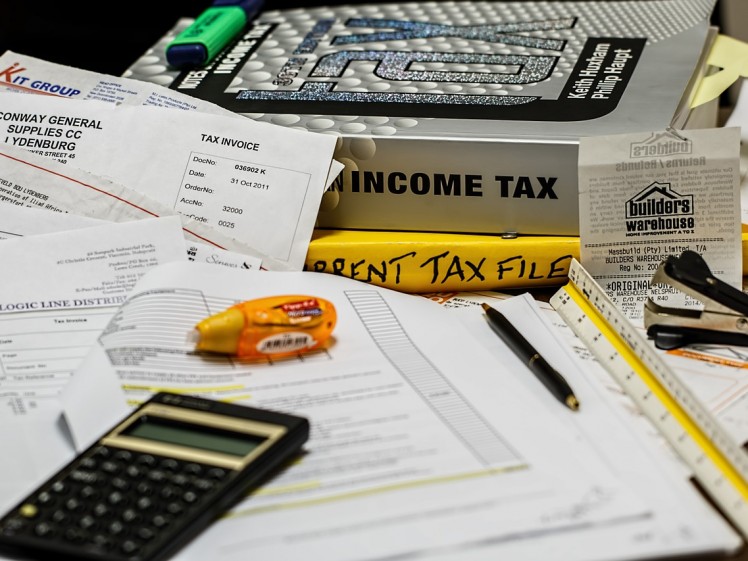This post was written by Greg Dewald.
Moving abroad can and should be the adventure of a lifetime, however, inevitably there’s a raft of practical issues to deal with along the way, from visa requirements, to getting to grips with housing and banking in our adopted country. One area that often falls off the list though is tax filing.
US expats have to file a tax return in both their host and home countries. This doesn’t mean that they’ll be paying taxes in both countries though – the majority of people don’t – but they still have to file. As a rule of thumb, you just pay taxes in the country where income is earned, but there are exceptions, notably for higher earners living in certain places. The important thing is to understand your obligations, ensuring that you don’t leave yourself open to possible non-compliance penalties.
So, here are our top tax tips for US expats living in South East Asia.
1. Know the Rules, Dates, and Extensions
All US citizens and green card holders have to file an annual tax return to the IRS wherever they live. Expats, however, also have to attach a form 8938 declaring any income and assets they have abroad. Furthermore, expats have to file a form 114 online declaring any foreign bank accounts with over $10,000 in them on aggregate, throughout the year. Form 114 must be filed by June 30th. Any tax due should be paid by April 15th; however, the annual return should be filed by June 15th, though you can request an extension to September 15th. Lastly, keep count of the days that you spend in the US in each tax year, as you have to declare these as part of your return.
Those are your US filing obligations as an expat. You should also find out about the tax obligations and filing dates required by your host country, which you may be able to do online. If not, get a recommendation for a local accountant from someone you trust.
2. Foreign Earned Income Exclusion
Now for some good news. The US won’t tax you on the first $100,800 of income earned abroad (this is the figure for 2015, and it increases each year). This is called the Foreign Earned Income Exclusion (or FEIE), and it takes many US expats who work abroad out of US tax liability altogether. (You will of course be taxed on your income in the country where you live). If your spouse is also a US citizen or green card holder, you can both claim up to the full amount. If he or she isn’t, see tip 5 below. To claim the FEIE, you have to have spent a minimum of 330 days outside of the US, within the tax year.
3. Foreign Tax Credit
If you earn more than the FEIE annual allowance, you can claim the Foreign Tax Credit. This allows you to claim as a credit against your US liability, a dollar for every dollar of income tax you’ve paid to the government, in your country of residence. Combined with the FEIE, this takes most US expats out of tax liability to the IRS altogether.
4. Tax Treaties
The US has tax treaties with over 40 other countries around the world, including Thailand, Indonesia and the Philippines. Malaysia and Singapore are not included. These prevent expats living in these countries from being taxed on the same income twice. So, if you are living in a country with which the US has a tax treaty and you are earning significantly more than the FEIE, you should still be in the clear in terms of owing taxes to the US.
5. Married Filing Separately
If you are married to a foreigner and they don’t have a green card or US citizenship, you should elect to file as ‘married filing separately’. This allows him or her not to have to declare their income or pay taxes to the IRS. Also, some taxpayers with US citizen dependent children can file as ‘head of household’. This sometimes makes dependents eligible for a refund, even without having earned any US sourced income.
6. Foreign Housing Allowance
If you work abroad and rent (rather than own) your accommodation, the Foreign Housing Allowance allows you to claim housing expenses including rent, utility bills, insurance, and parking as tax deductible, normally up to the value of 30% of the Foreign Earned Income Exclusion (see tip 2 above). This depends on where you live. Some places are recognised as being more expensive, and higher housing expenses can be claimed.
7. FBAR and FATCA
Many expats speak of FBAR and FATCA almost with fear, but the reality is relatively simple. FBAR is the Foreign Bank Account Report, which requires expats to declare their foreign bank accounts (with form 114, see tip 1), while FATCA (the Foreign Account Tax Compliance Act) is a US law which obligates expats to declare any foreign earnings and assets in their tax return using a form 8938 (again see tip 1). It’s that simple – 2 extra forms for US expats.
8. If in Doubt, Ask an Expert
For some people, particularly those with straightforward situations and spare time on their hands, it makes sense to file their own annual returns. For many others, though, it may make more sense to seek out a specialist US expat tax preparer for advice. The cost, which isn’t huge, will probably more than justify the time and stress saved. They also know the rules inside out, perhaps using the IRS’s Streamlined Procedure to bring people who have been living abroad for over a year but haven’t yet filed up to date without incurring non-compliance penalties.
Read This: An Inside Look at Malaysia’s Housing Market and Middle Income Class
"ExpatGo welcomes and encourages comments, input, and divergent opinions. However, we kindly request that you use suitable language in your comments, and refrain from any sort of personal attack, hate speech, or disparaging rhetoric. Comments not in line with this are subject to removal from the site. "
























I’d be careful with that FEIE. Your only allow to claim the status once in your lifetime. So if your planning to go back to the states for any holiday or extended period make sure your under the radar on your minimal stay. This sometimes catches MY second home buyers by surprise. The IRS also has special rules if you make over 100K so get a good accountant. 😉
Katie Pisowicz
The tips apply the same whether you live in SEA or in Mongolia, btw
Robert P Ross